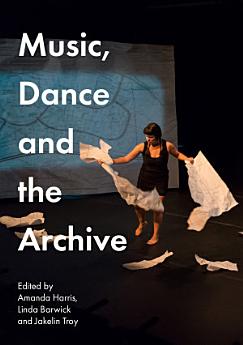Music, Dance and the Archive
Acerca de este libro electrónico
Music, Dance and the Archive interrogates historical practices of access to archives by showing how Indigenous performing artists and community members and academic researchers (Indigenous and non-Indigenous) are collaborating to bring life to objects that have been stored in archives. It not only examines colonial archiving practices but also creative and provocative efforts to redefine the role of archives and to bring them into dialogue with contemporary creative work. Through varied contributions the book seeks to destabilise the very definition of “archives” and to imagine the different forms in which cultural knowledge can be held for current and future Indigenous stakeholders. Music, Dance and the Archive highlights the necessity of relationships, Country and creativity in practising song and dance, and in revitalising practices that have gone out of use.
Acerca del autor
Amanda Harris is a Senior Research Fellow at Sydney Conservatorium of Music, University of Sydney and Director of the Sydney Unit of digital archive Pacific and Regional Archive for Digital Sources in Endangered Cultures (PARADISEC). Amanda is interested in hearing the voices of those often excluded from conventional music histories through collaborative research focused on gender and intercultural musical cultures. Her monograph Representing Australian Aboriginal Music and Dance 1930–70 was published by Bloomsbury Publishing in 2020.
Linda Barwick is a researcher and writer whose interests include nurturing creativity, honouring intergenerational wisdom and promoting diversity of thought and compassionate action. She enjoys gardening, bridge, grandchildren and cats, and is Emeritus Professor at Sydney Conservatorium of Music, University of Sydney, and a Fellow of the Australian Academy of the Humanities.
Jakelin Troy (Jaky) is Ngarigu of the Snowy Mountains, called by Jaky’s community Kunama Namadgi, in south-eastern Australia. She is Director, Indigenous Research at The University of Sydney and founded the Sydney Indigenous Research Network (https://bit.ly/3SpWQF1). Jaky is conducting research with Linda and Amanda into the use of historical records locked in the archives to support her own and other Aboriginal communities to recover and maintain language, cultural practices, performance and music. Recently she has been working with communities in north-west Pakistan to support their cultural activism as they document and share their language, music and performance.







